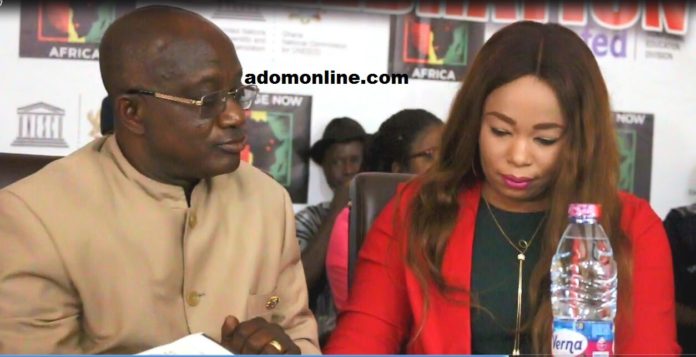Ashanti Region Minister, Simon Osei-Mensah, is encouraging Ghanaians to pay attention to the use of local languages in communication both at home and in school.
He said the continued neglect of Ghanaian dialects in favour of foreign languages is contributing to the loss of cultural identity and societal indiscipline.
Speaking at a special event to commemorate this year’s International Literacy Day in Kumasi, he observed that communication in one’s dialect is a strong foundation for academic development.
The event was organised by Engage Now Africa, UNESCO and other interest groups under the theme, “Literacy and Multilingualism”.
United Nations statistics show 7,000 languages are spoken worldwide but some local media of communication are gradually going extinct.
Out of 83 of Ghana’s recognized languages, only 40 are written.
Mr Osei-Mensah says it is time Ghanaians pay attention to learning and speaking of languages of their ethnic groups the same way they attach importance to the English language.
“Sometimes, it is mind-boggling that when I hear people from this country saying those who can speak the English language like parrots are more intelligent than those who speak our local languages. In Ghana today, especially in Ashanti Region you go and speak Twi at a function and it means you are the least knowledgeable because you cannot speak the English Language. It’s time we have to accept the importance of our local languages. That’s more important,” he said.
Mr Osei-Mensah’s call is supported by Director of Non-Formal Education, Francis Asumadu, who wants promotion of multilingualism, especially at the basic level.
“It is time that we look at the multilingual aspect of it not forgetting that as a country, we also have about 83 languages of which only 40 have been written and only 11 is widely used by the Ghana Education Service in schools The question is what about those languages that cannot be used in schools? How would they and others whose language are not recognized there have a mother tongues delivery because there is a strong correlation between mother tongue been used for learning,” he said.
Country Director of Engage Now Africa, Cecilia Amankwah, called for the protection and preservation of Ghanaian languages.
” There is a need for the country to unite and protect her languages and properly hand them over to successive generations.”
Engage Now Africa’s literacy program has enrolled nearly 9,000 people in nine regions for adult education since 2014.
Some of them receive free skills training in soap and bead making, baking, among others.
Country Director, Cecilia Amankwah, wants more government’s collaboration in adult literacy programmes.
“We are open to partnership in this venture. The government should support NGOs and stakeholders in literacy who provide skills development training to enhance the socio-economic well-being of the Ghanaian people,” she said.
Source: Ghana I Nhyira FM I Ohemeng Tawiah I ohemengtawiah@gmail.com

